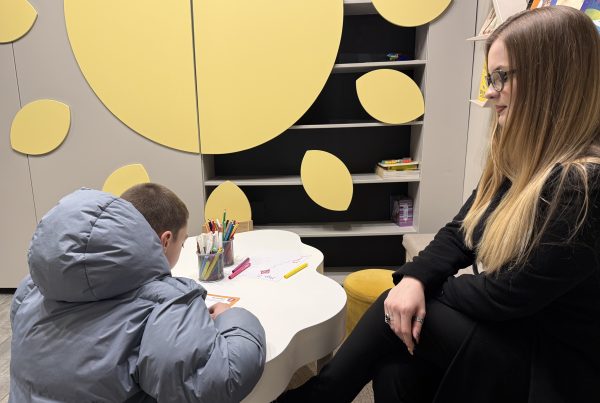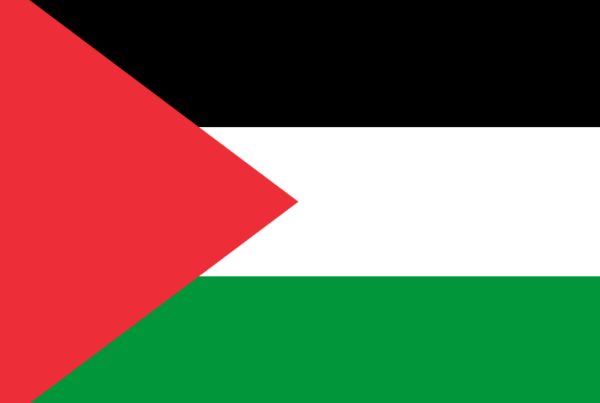The International Day of Peace, observed worldwide on September 21, was established in 1981 as a reminder of the importance of peace and the need to nurture a culture of nonviolence.
At the War Childhood Museum, we are committed to promoting peace by amplifying the voices of children whose childhoods have been shaped by war. Today, an estimated 473 million children live in areas affected by conflict. Our collection preserves objects and testimonies from some of these contexts, including Lebanon, Yemen, Ukraine, and Palestine.
Most recently, we have focused on gathering stories from children in Palestine, including those living in Gaza under occupation, while our office in Ukraine continues to collect testimonies from children affected by the Russian invasion.
To honor their voices and experiences, on this International Day of Peace we are sharing some of their stories. You can read them below.
My Mother’s Hair Tie

I have lived without my parents for more than a year.
My parents are journalists. When the war started, my siblings and I stayed with our grandparents while they worked. We still got to see them every day, even if only for a little while.
As the war grew more violent and strikes happened everywhere, my parents decided to send us to Egypt with our grandparents for safety. They stayed behind to cover the war. My mother promised she would join us soon. But the borders were bombed and closed, and she became stuck there.
I will never forget the day we were taken to the border. It was very tough and emotional. Right before we left, my mother took the hair tie from her hair and gave it to me. She said, “Here, tie your hair.”
It is the only thing I have from her. But I have decided to give it to the museum.
I speak with her every day. I ask for her opinion on everything, even what outfit to wear. I miss her so much. She is my hero. She is my everything. It is impossible to live my life knowing my parents are still in danger.
Alia, b. 2011, Gaza
A Spoon of Sorrow
Every meal is a struggle. The moment I lift the spoon, I see the faces of my friends, Ziyad and Mousa. We learned they were killed in the war through photos on social media.
We grew up together in the same neighborhood in Gaza. After school, we were always at each other’s houses, sharing meals and laughter. Food was the center of our community, a simple, daily joy.
Now, when I eat, I remember those good times with my family and friends. But those memories are now shadowed by other images—the ones for starvation and loss. The two realities collide on my plate, and I can no longer taste my food without tasting grief. The simple act of eating has become a reminder of all that was taken from us.
Khalid, b. 2014, Gaza
A Toy for My Younger Brother
When active hostilities began, dad joined a battalion. They sent me to my grandmother. One day, my mother called to tell me that my father had taken the oath. I burst into tears. My mother reassured me: “People don’t always die during military operations.” After some time, I was sent to Kyiv where they told me that my father had died. My father’s battalion was on a reconnaissance mission and got caught in an ambush. My father covered the others with his body—he was a driver.
I made this soft toy myself after my father died, to comfort my younger brother. I put all my love for my brother into it. When dad died, my brother was only four years old, so he doesn’t really remember his father. Ever since he was little, my brother has liked to sleep with soft toys, and he started to take the cow to bed with him, too.
I understand that my father gave his life for a peaceful Ukrainian sky. That he paid the ultimate price, one which we, his family, also pay. I really wish he was alive, so that we could go fishing together, take pictures, and draw the way we used to.
Mykhailo, b. 2007, Kyiv
I Am Proud of Ukraine’s Children
My little cousin Arturchik played with this cube in the first days of the war, when we were sitting in the shelter. Back then the alarms sounded for a very long time, for two or three hours, and it was difficult to sit. It was still cold–almost winter–it was very difficult. There were also other neighborhood children with whom he played.
I believe that the war in 2023 is some great absurdity of humanity. This is generally some kind of incomprehensible thing. Why does it exist? Why am I worried at the age of 17 that there is some idiot in this world who will launch a rocket at me? What is this anyway? I want to try to actualize myself, but they tell me: “No, man, we want to take over your country. Your country is artificially created.” This is a great absurdity. We want to support those children who have been touched by this war and are now sitting, hiding, and feeling it all. How strong, how motivated they are, and how much they have grown. I am proud of Ukraine’s children.
Bohdan, b. 2006, Kryvyi Rih







